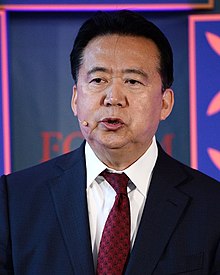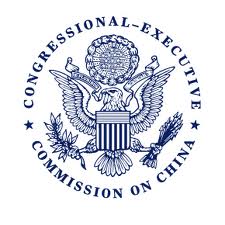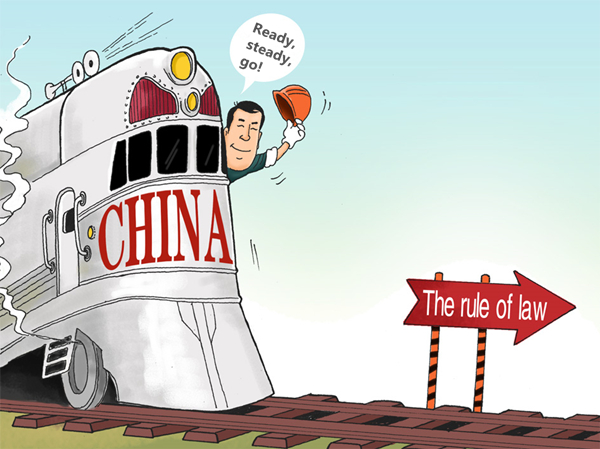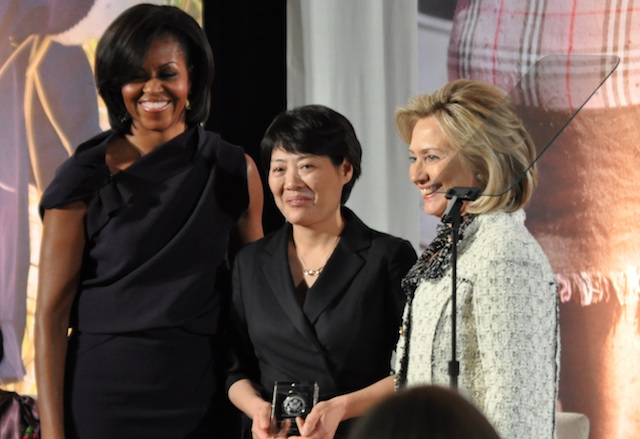CECC Issues 2018 Annual Report
 The Congressional-Executive Commission on China’s (“CECC”) 2018 Annual Report (“the Report”), released on October 10, 2018, comes at a crucial point in world affairs. The United States is on the retreat from the global stage, withdrawing from key international agreements and organizations, and China appears intent to replace it. But as the CECC’s 2018 Annual Report makes clear, with President Xi Jinping’s complete consolidation of power this year and the re-entrenchment of the Chinese Communist Party (“CCP” or “the Party”) within the state, China’s rise will likely alter the current world order and challenge U.S. values and interests. If anything, China’s recent behavior – the public disappearance of Meng Hongwei, the former Interpol chief and the issuance of more discriminatory regulations directed at Uighurs – only substantiates CECC’s predictions that China’s rise will not be inline with the values that have dominated the world order since the end of World War II.
The Congressional-Executive Commission on China’s (“CECC”) 2018 Annual Report (“the Report”), released on October 10, 2018, comes at a crucial point in world affairs. The United States is on the retreat from the global stage, withdrawing from key international agreements and organizations, and China appears intent to replace it. But as the CECC’s 2018 Annual Report makes clear, with President Xi Jinping’s complete consolidation of power this year and the re-entrenchment of the Chinese Communist Party (“CCP” or “the Party”) within the state, China’s rise will likely alter the current world order and challenge U.S. values and interests. If anything, China’s recent behavior – the public disappearance of Meng Hongwei, the former Interpol chief and the issuance of more discriminatory regulations directed at Uighurs – only substantiates CECC’s predictions that China’s rise will not be inline with the values that have dominated the world order since the end of World War II.

Former Interpol Chief, Meng Hongwei, now in NSC confinement.
The CECC was created in 2000 to monitor China’s human rights commitments, review its progress in developing a rule of law, and maintain a database of Chinese political prisoners. With a staff of China experts, the CECC has become a leading voice on China’s progress in regards to international human rights standards and the development of rule of law in more sensitive areas such as freedom of expression, criminal justice and access to justice. As with its previous reports, the 2018 Annual Report is extremely well researched and extensively documented, providing an important snapshot to what is really happening in China, making it an essential read.
While prior annual reports highlighted China’s progress in trying to meet international human rights standards or deepen its commitment to rule of law, the 2018 Annual Report is devoid of any positive developments. And rightfully so. As the Report makes clear, three alarming developments in the past year reflect a country intent on disregarding international human rights norms and turning its back to a rule of law.

A police state in the Uighur province of Xinjiang in China’s far West. (Photo courtesy of The Week (UK)).
Perhaps the Report’s most urgent issue is the Chinese government’s mass detention of what is estimated to be 1 million Uighurs in internment camps. Without any trial or criminal charges, these internment camps reflect the Chinese government’s stated goal to “sinicize” religion, including that of the Uighurs, a Muslim minority population in Xinjiang province. And the mass detentions show no signs of stopping. As the CECC documents, the Chinese government’s own procurement data shows its plan to build more camps.
A second worrying development is the re-entrenchment of the Party within the State. During much of Chairman Mao’s time, the Party and the State were essentially one, but since then, the Chinese government has sought to separate the Party from the government bureaucracy. Until now. In March 2018, the Party Central Committee issued a restructuring plan to again embed the Party in government work, with the Party taking a leadership role. Perhaps the most notable example of the infiltration of the Party into everyday life is the creation of the National Supervisory Commission (“NSC”), an anti-corruption commission that has the power to “confine” – in other words, extra-judicially detain – any Party member or state employee suspected of corruption for three months without access to an attorney. Employees of state-owned enterprises, staff of public hospitals and public educators all fall under the NSC’s purview. Even non-Party members and non-state employees could be subject to “confinement” by the NSC if they too are suspected of involvement in official misconduct. Outside of the judiciary, the NSC is anything but due process.
China’s ubiquitous security cameras. (Photo Courtesy of the Huffington Post).
Finally, the 2018 Annual Report highlights the Chinese government’s continued use of technology as a tool of repression. The Chinese government is seeking to create a biometric database as well as a “social credit system” which, if realized, could have lasting effects on certain individuals.
The 2018 Annual Report concludes by offering some key recommendations, notably addressing abuses in Xinjiang publicly – and with key allies – before the United Nations, raising the issue of human rights in all bilateral relations, not just during the Department of State’s human rights dialogues with China, and condition law enforcement cooperation, such as cooperation on extradition, on a signed agreement from the Chinese government that it will respect due process in all situations. But one wonders if these recommendations fall on deaf ears. The CECC is supposed to be a joint commission between Congress and the Executive. But as reflected in the masthead for this year’s Report, the Executive positions on the CECC remain empty. While the Trump Administration is not shy in lambasting China on a variety of issues, and in early September word was leaked that it was considering economic sanctions against China for its internment of Uighurs, the fact that key Executive positions on the CECC remain empty over a year and a half into the Trump Administration, belies any meaningful commitment by the Administration to human rights and rule of law in China. An unfortunate development given the severe situation documented in the CECC’s 2018 Annual Report and the danger it poses to the United States and the post-World War II world order.
 On Facebook
On Facebook By Email
By Email 




